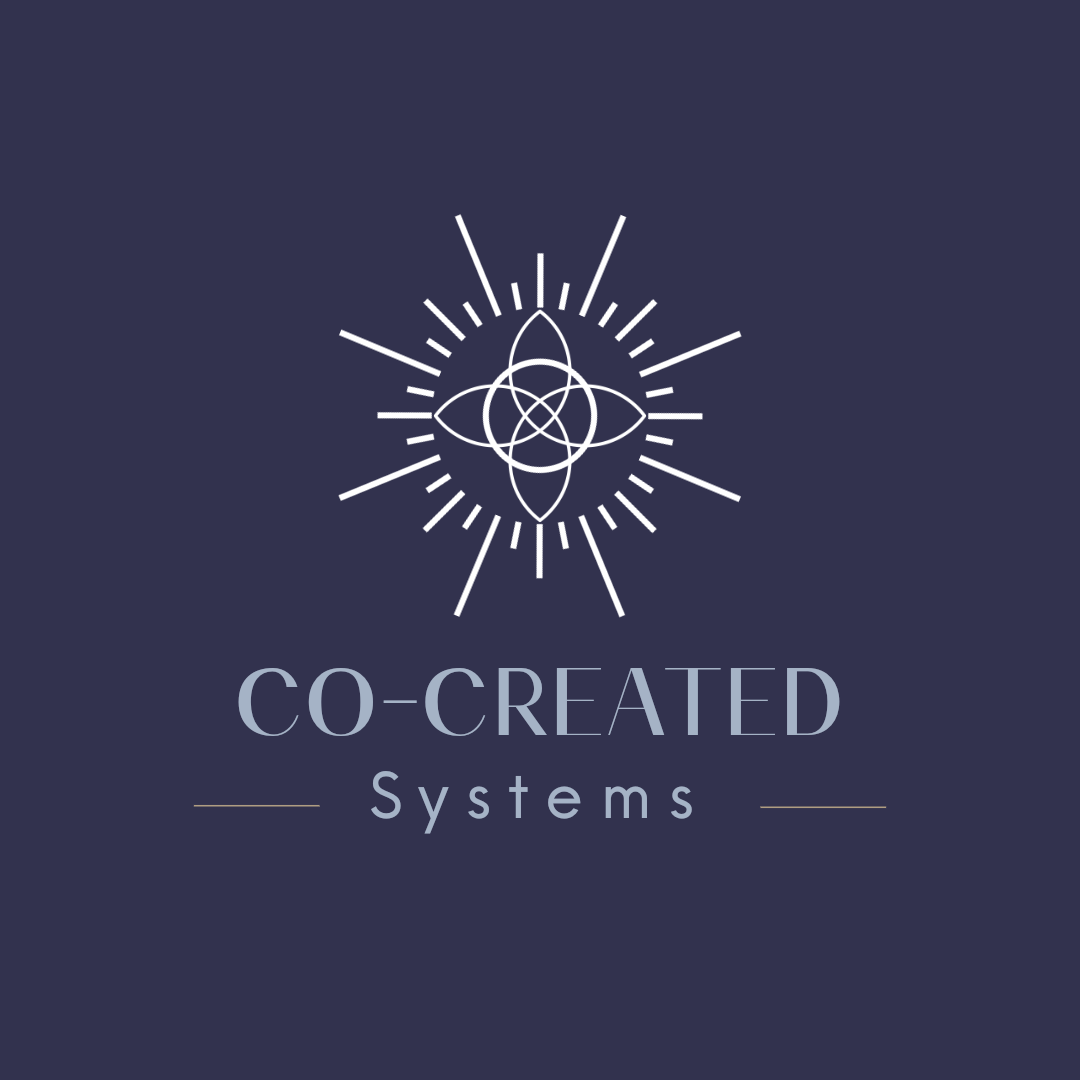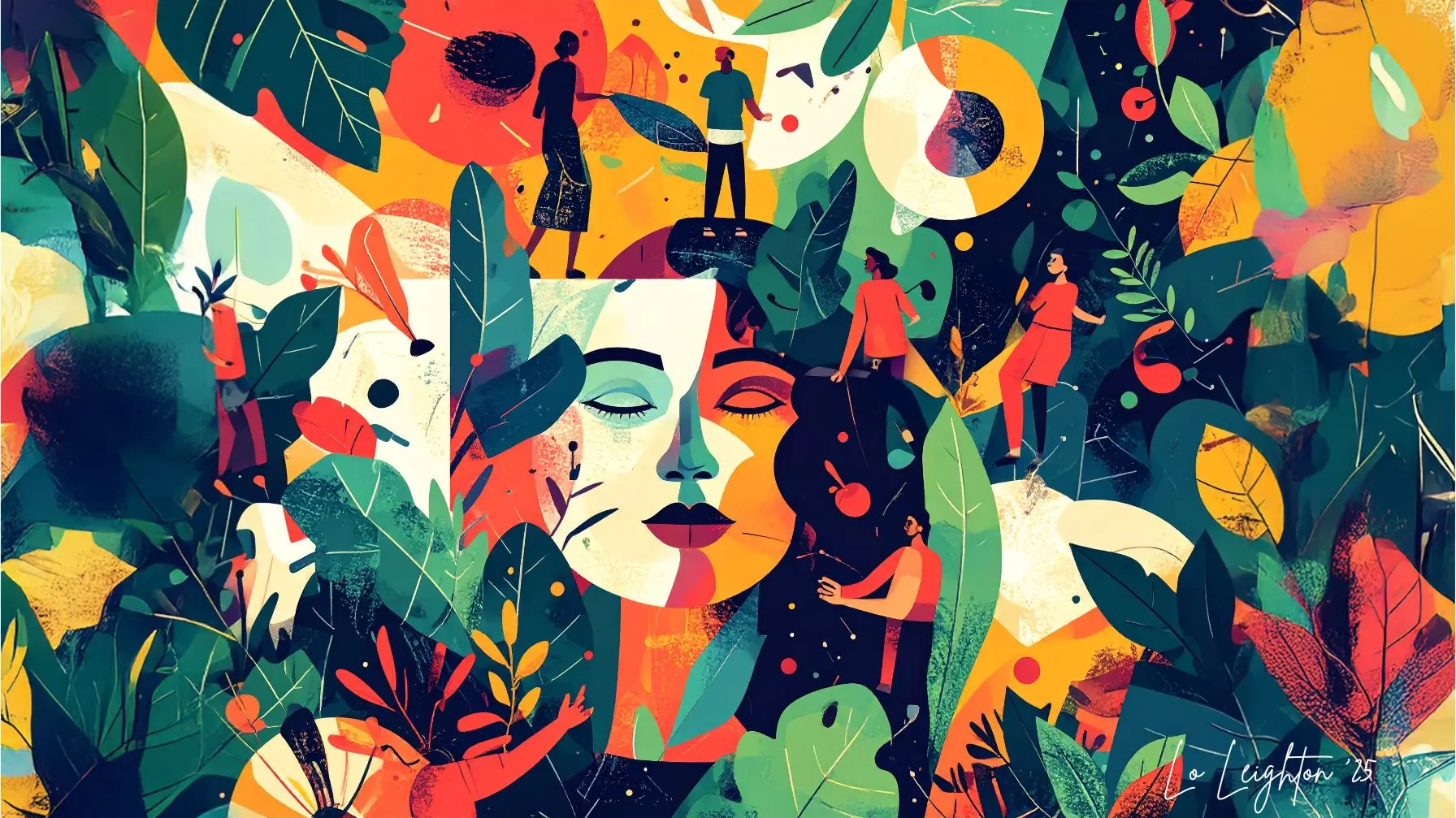
Domination System to Partnership Systems: Relational Social Imaginaries
Anger to Compassion
Fear to Curiosity
Control to Creativity
Isolation to Integration
Our relationships reveal everything about the world we’re creating together. The patterns of how we connect—whether through competition or collaboration, hierarchy or mutuality, extraction or reciprocity—shape not only our personal experiences but the very fabric of our communities and institutions.
The stories we’ve inherited about relationships often frame them as zero-sum games where someone must win and someone must lose, where independence is prized above all else, and where control ensures safety. These patterns run so deep we rarely question them, yet they’re at the root of many of our collective challenges—from political polarization to workplace burnout to environmental destruction.
But what if relationships could be generative rather than extractive? What if our connections could create abundance rather than scarcity? What if interdependence—rather than independence—was actually our greatest source of strength and resilience?
The Shift from Separation to Connection
The transition from domination to partnership in our ways of relating represents a fundamental reimagining of what it means to be human together. Instead of seeing relationships as contracts between separate individuals, we begin to recognize them as the living fabric through which we become who we are.
This shift isn’t just about being “nicer” to each other—it’s about recognizing that our wellbeing is literally interconnected. When we understand that what happens to others affects us, and what happens to us affects others, our entire approach to relationship transforms. We move from asking “How can I get what I need?” to “How can we create conditions where everyone can flourish?”
Beyond Siloed Solutions
The challenges we face—from climate change to inequality to mental health crises—cannot be solved by individual action alone. They require new ways of organizing ourselves that can hold complexity, navigate difference, and generate solutions none of us could create in isolation.
Partnership ways of relating offer practical approaches for this kind of collective intelligence. They provide frameworks for decision-making that include all voices, for conflict transformation that strengthens rather than breaks relationship, and for leadership that shifts dynamically based on wisdom and context rather than fixed hierarchy.
Living Examples of Partnership
Around the world, communities are already demonstrating these alternative ways of relating. Indigenous societies have maintained partnership principles across generations. Cooperative businesses operate on principles of shared ownership and democratic governance. Restorative justice programs heal harm through relationship-building rather than punishment. Community organizing creates power with people rather than power over them.
These aren’t utopian fantasies—they’re practical approaches that are already working. They show us that other ways of being together are not only possible but are happening right now.
The Practice of Transformation
Some of the most complex challenges we face—from climate change to social inequality—cannot be understood through any single lens or solved by any individual expert. They require what we might call collective intelligence: the capacity for groups to generate insights and solutions that none of the participants could create alone.
This kind of collaborative inquiry doesn’t happen automatically when people gather. It requires practices that can hold multiple perspectives, navigate difference constructively, and create conditions where new understanding can emerge. It means designing processes that honor both expertise and lived experience, that can hold both analysis and intuition, that create space for the unexpected insights that arise when diverse ways of knowing encounter one another.
Living Into New Possibilities
Shifting our ways of relating begins with the relationships we have today. It starts with small experiments: listening more deeply, sharing power more equitably, making decisions together, approaching conflict as an opportunity for greater understanding rather than a battle to be won.
As we practice these new patterns in our families, friendships, and workplaces, we begin to embody the world we want to create. We become living examples of what partnership looks like, creating ripple effects that extend far beyond our immediate relationships.
The invitation is not to perfect these practices but to engage with them as ongoing experiments in what becomes possible when we choose connection over separation, collaboration over competition, and mutual flourishing over individual success.
Ways of Knowing: Lived Experiences
Explore the specific contrasts between domination and partnership patterns in relationships, along with real-world examples and practices for transformation.
Watch, Read, Listen
No posts were found.
Join 900+ subscribers
Stay in the loop with everything you need to know.

